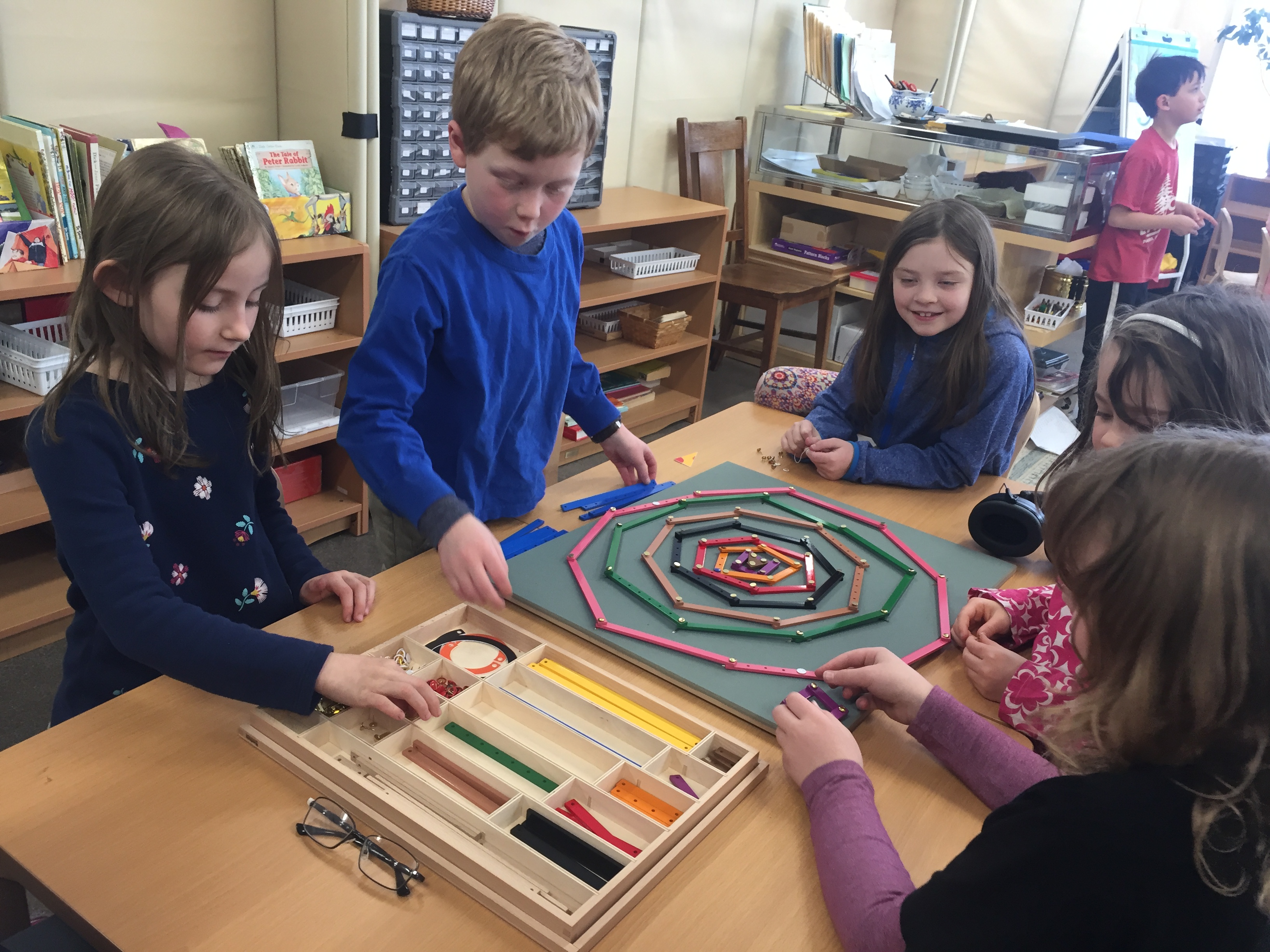When I moved to Bend, Oregon I was surprised to learn that while there were several thriving Montessori preschool programs, there were no Montessori elementary programs at all! As a former assistant teacher in a Montessori lower elementary class (1st-3rd grade) I knew that the freedom to move about the classroom and to focus on areas of interest were crucial to support deep learning. I witnessed students diving deeply into their interests and I saw the head teacher use student interests to draw them in to other subjects. Overall I just loved the sense of freedom and responsibility that the students experience in a Montessori elementary classroom. And the work they produced was impressive and often far above grade level.
So, when my daughter entered preschool and was thriving in a Montessori program, I knew that I would want her to continue in Montessori. It’s exceptionally important to me that she be treated as a whole human being and that she continue to develop her emotion regulation, conflict resolution, and other “soft skills” along with her academic work.
Educating the whole child
One of the things I love about Montessori is that the teacher is not focused on how much information he or she can present to my child, rather, Montessori teachers are focused on helping my child develop her internal motivation to learn and grow and take responsibility for her own learning. This attitude, along with the meticulously designed materials which captivate a child’s interest, encourages exploration and provides opportunities to learn a wide variety of information and practical life skills.
I knew I couldn’t afford to pay tuition all the way through middle school and I had heard that a few of the Montessori preschools had tried to get a tuition based elementary program off the ground, but they had trouble retaining older students since our public schools in Bend are so good. So some friends and I decided that a public, tuition free Montessori charter school would best serve our community and our own kids.
Montessori in the public sector
After having worked in several private Montessori schools, one thing I noticed was that while the Montessori method was initially developed to help low income and mentally challenged students, it is now most accessible to families with the means to pay tuition. I was saddened to learn that the very students Maria Montessori most wanted to help were missing out on her incredible teaching methods, mostly because the materials are expensive and public Montessori schools are still burgeoning in the US. I was happy to learn that many of the public schools in France are Montessori schools!
The process of starting a charter school was not as easy as I had anticipated! It took us several rounds of denials before we were finally approved by our local school board to open a Montessori charter school. Luckily, with the help of many volunteers and the receipt of the Oregon Department of Education’s Planning grant, we were finally able to open our doors in the fall of 2017!
Other options just aren’t Montessori
During my daughter’s first grade year, we were forced to try a public magnet school since there were no Montessori options. We chose a school with a democratic philosophy, mixed ages, and some freedom to work outside of grade level. But because it was not a Montessori school, my daughter found it loud, chaotic, and she chaffed at her lack of freedom to explore her interests. She often complained that they didn’t give her enough time to read and that she was forced to do what everyone else was doing. I also didn’t like hearing about frequent screen time (mostly educational) and she came home with candy as a reward on quite a few occasions.
Growth mindset and intrinsic motivation
In a Montessori classroom, we’re focused on developing the internal motivation of the student, so letter grades, rewards, and frequent external praise are not used. Instead, we expect a child to gain a sense of accomplishment by working hard and completing a large project and we all listen as they present their research findings to the class during circle time. This gives students the opportunity to practice their public speaking skills as they share what they’ve learned with their classmates.
I could go on and on about all of the wonderful benefits of a Montessori elementary education, but for now I’ll just share that the perseverance and grit that was required to get this school off the ground has forever changed me. I will never again shy away from a large project because it seems too big, takes too long, or because we’ve hit a roadblock. If there’s one lesson my daughter and I have both learned through this process, it’s that when you’re determined to create something, you can absolutely succeed as long as you don’t quit, find helpers, and keep moving forward no matter what obstacles you encounter. Our Montessori charter school is now serving over 100 students and with plans to grow every year, I know that this school is already making a big difference in the world. So, if there’s something you’re passionate about creating, don’t shy away from your dreams, go out there and create it! You’ll be so glad you did.
This article was also published in the Rebel Priestess Magazine


